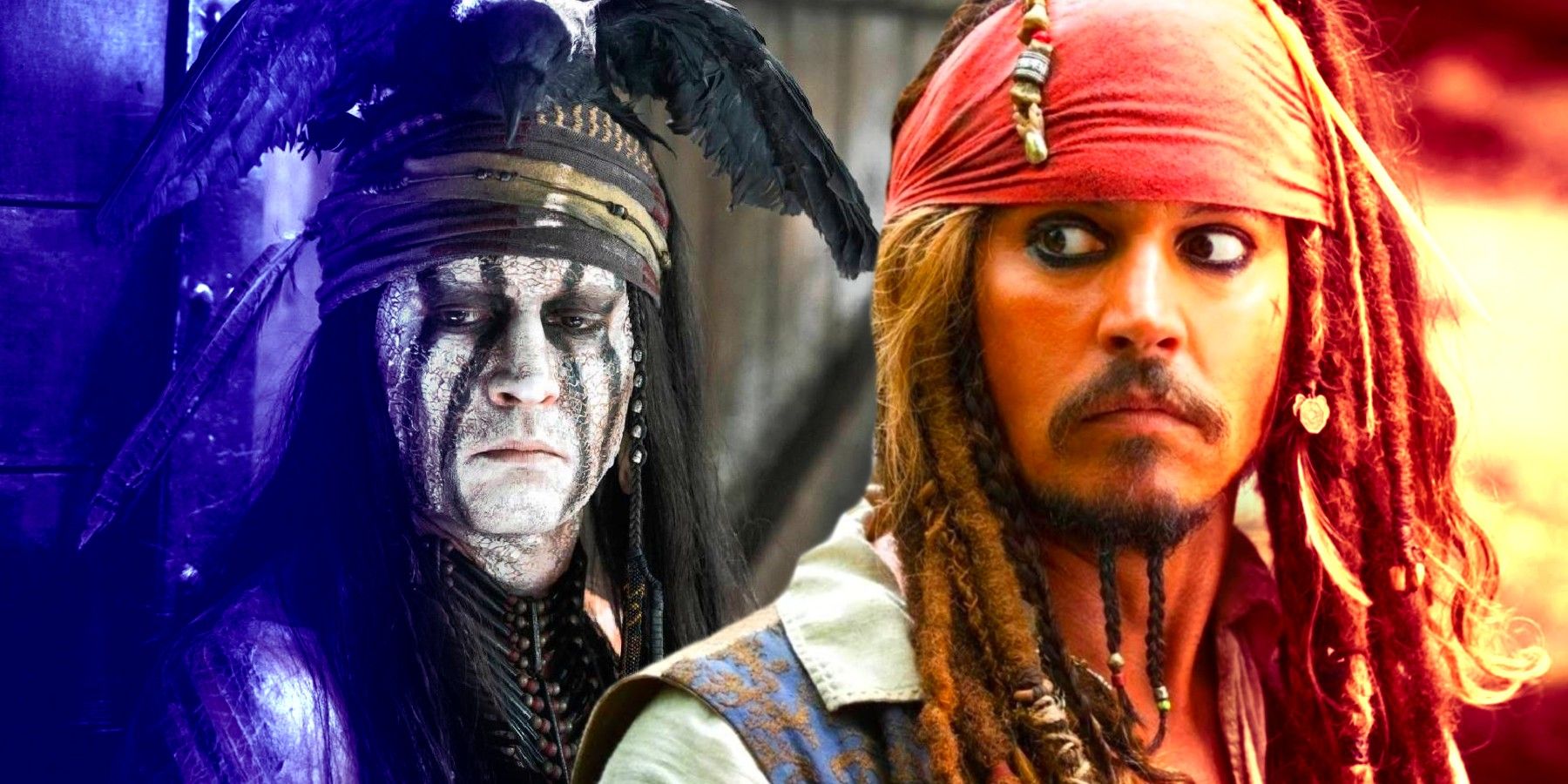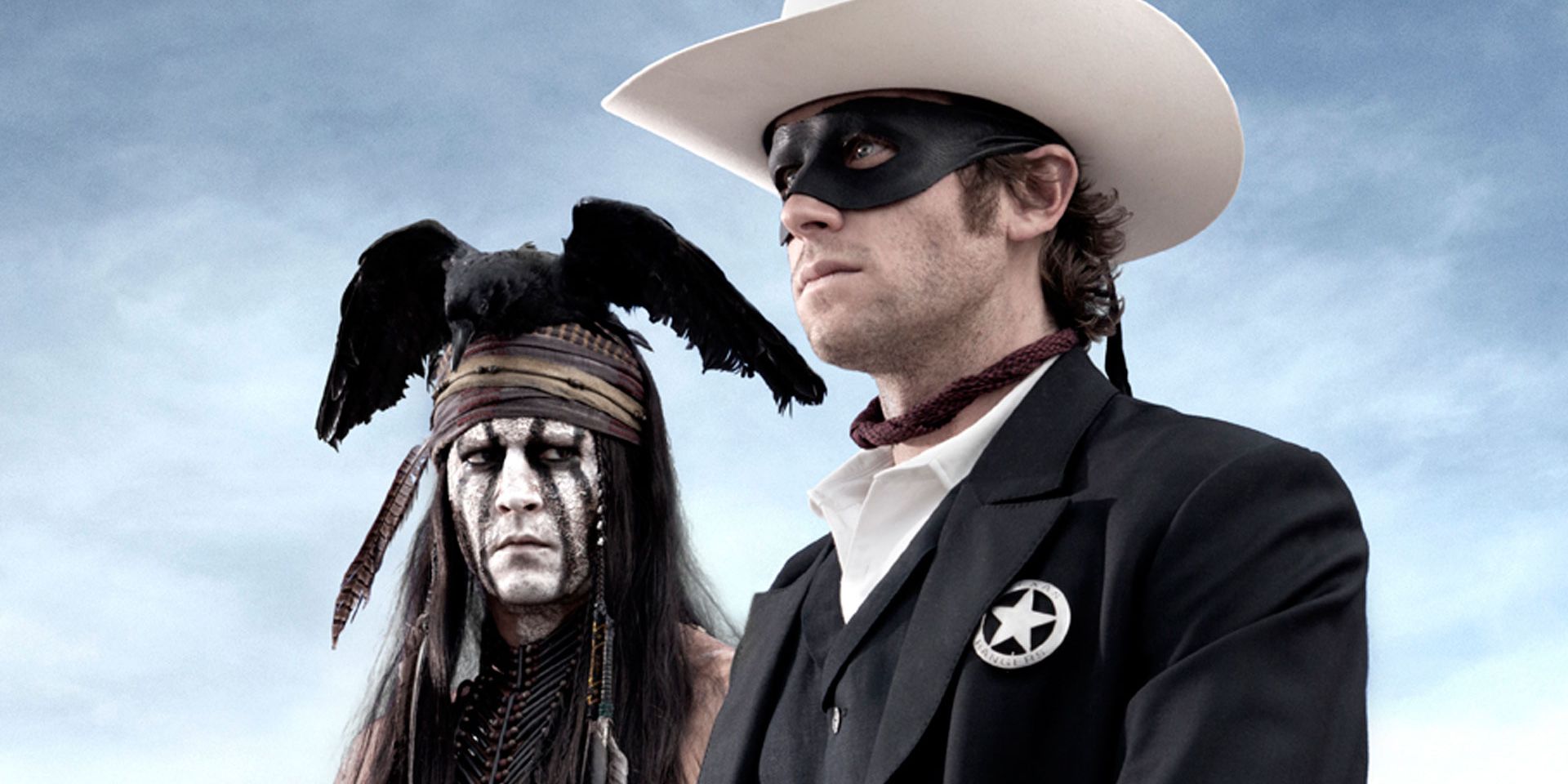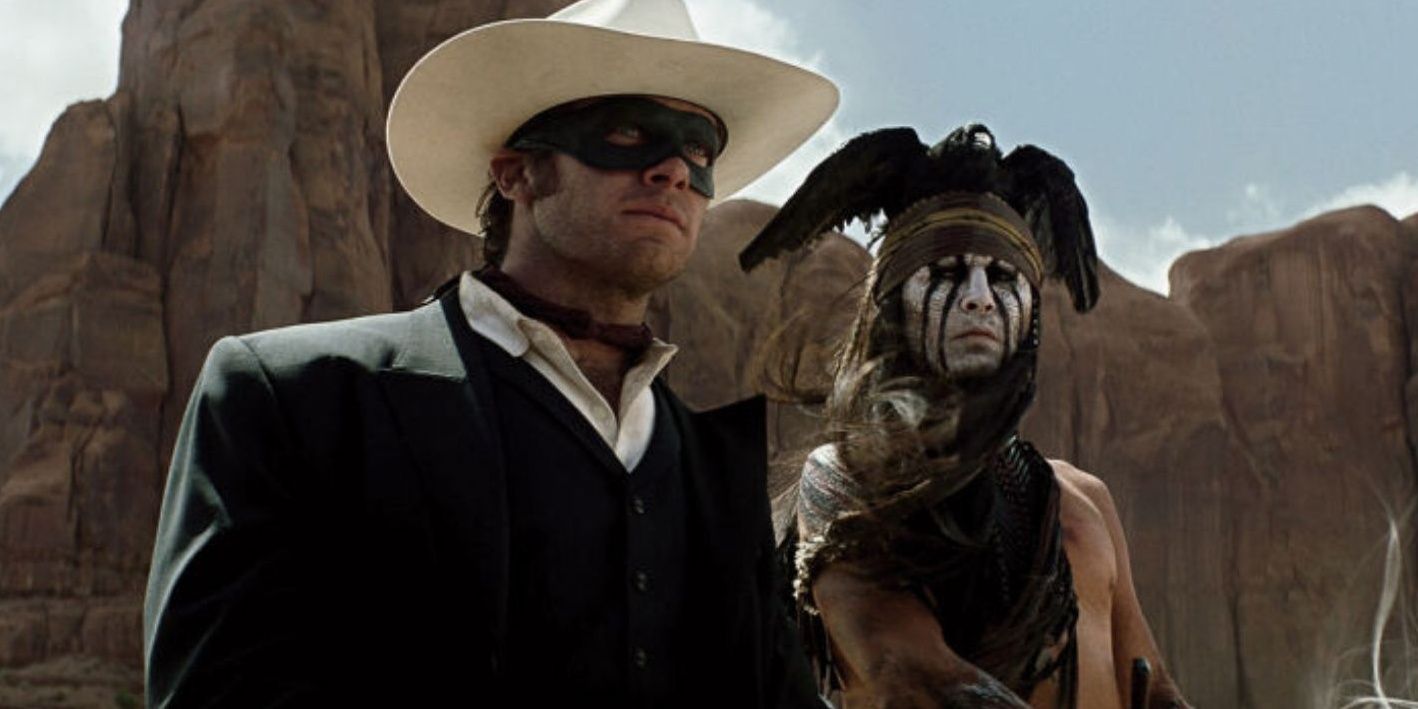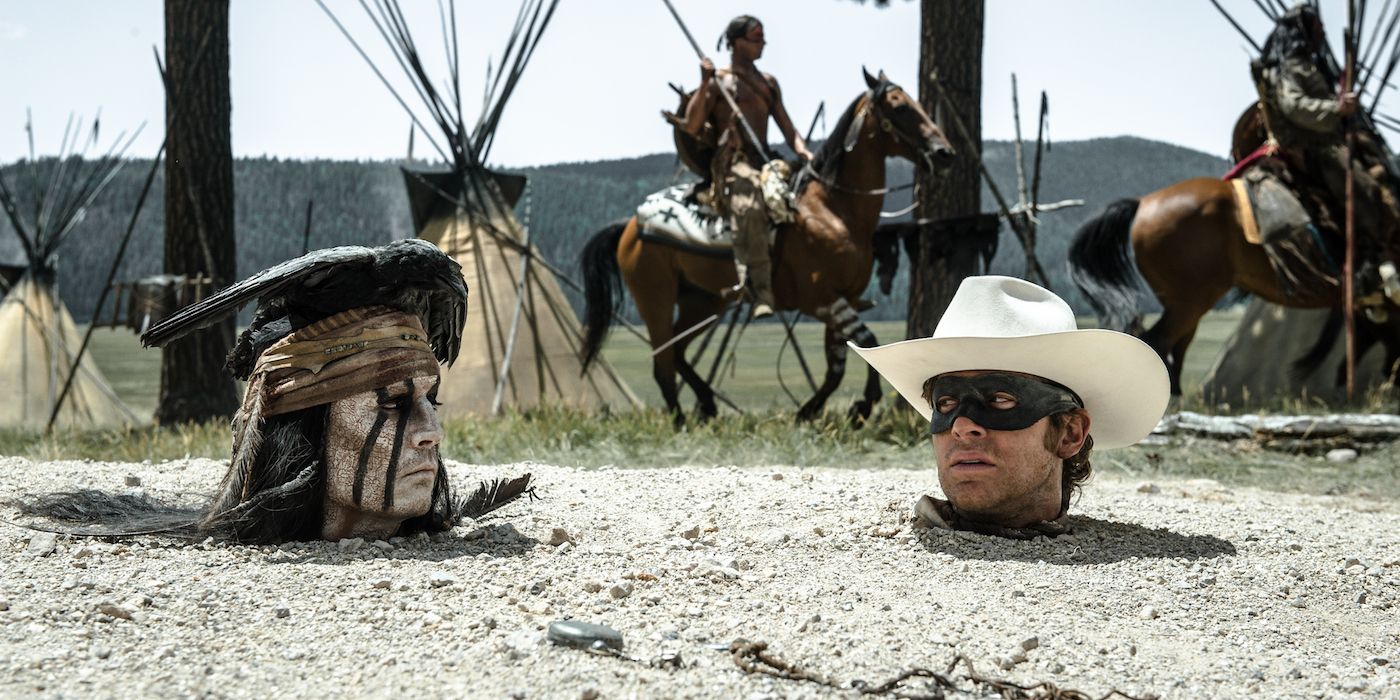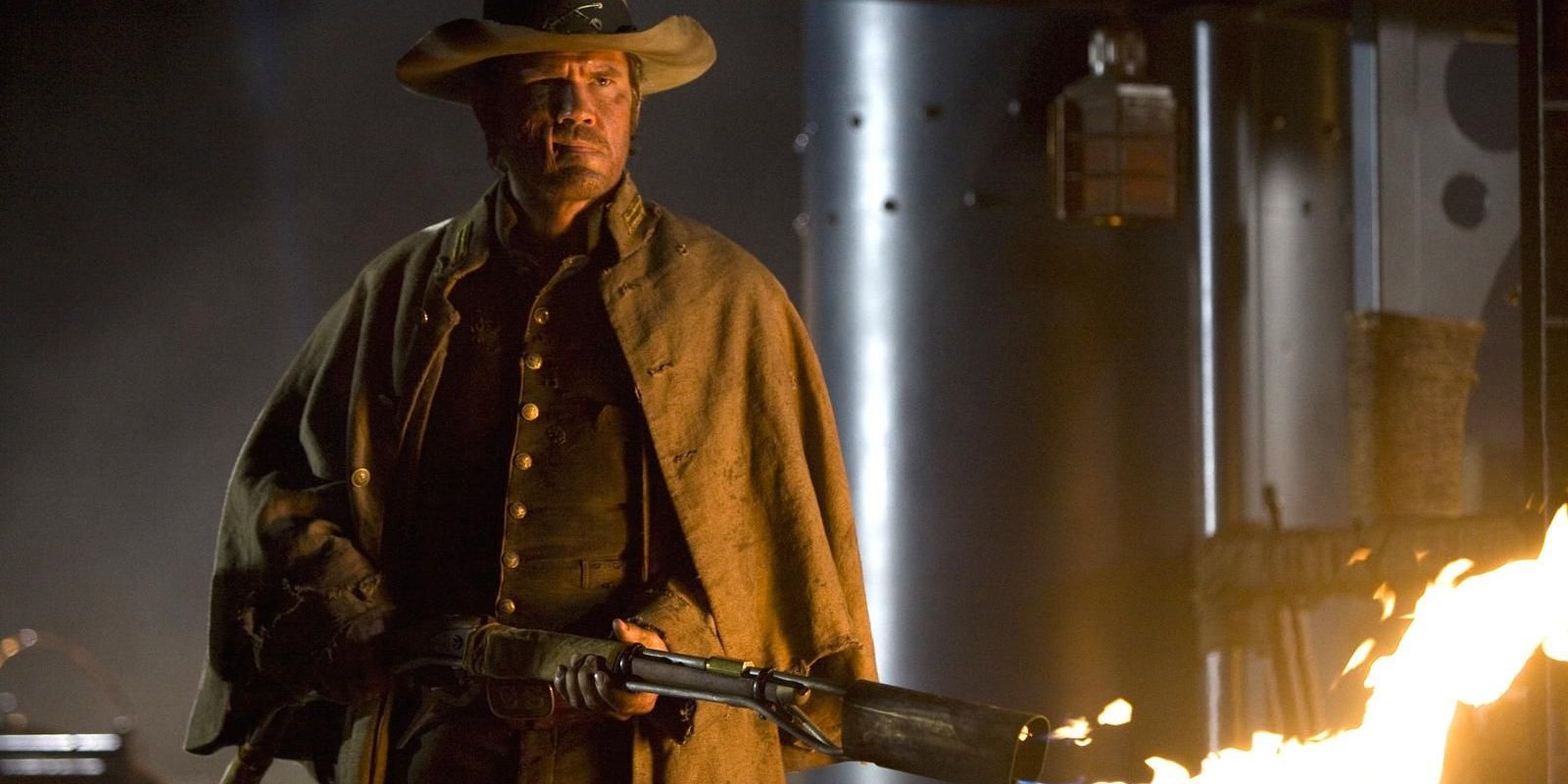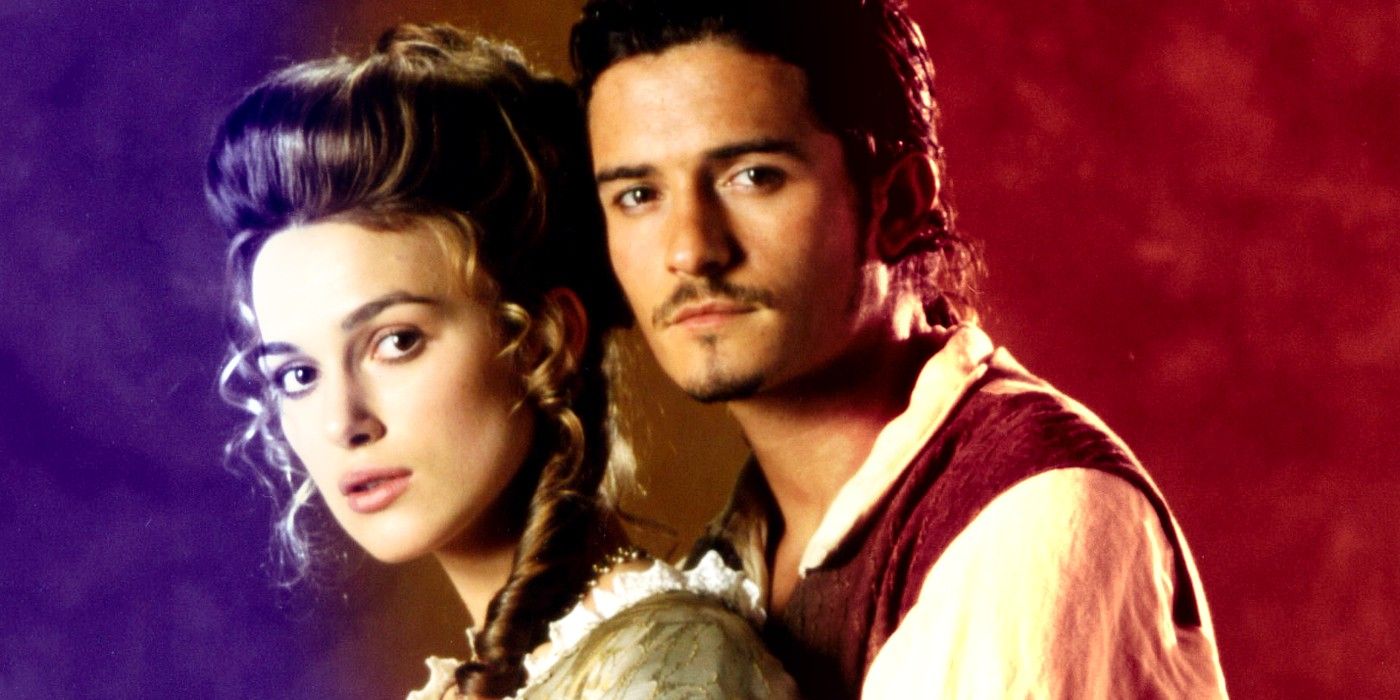2013’s The Lone Ranger was supposed to be a Pirates of the Caribbean-sized hit for director Gore Verbinski and star Johnny Depp, so why was the Western a massive failure with audiences? Although the franchise went on to become one of the most financially successful movie series of all time, few film fans predicted the success of The Pirates of the Caribbean movies when The Curse of the Black Pearl arrived in cinemas in 2003. The infamous Renny Harlin-helmed flop Cutthroat Island had essentially killed the swashbuckling action-adventure genre for the foreseeable future eight years earlier, and few industry insiders could see this series bringing back the audience's interest in pirates.
However, the Pirates of the Caribbean movies had a secret weapon that critics weren’t prepared for. Johnny Depp’s camp antihero Jack Sparrow immediately won the hearts of fans worldwide, and the actor’s zany take on the character ended up making the Pirates of the Caribbean franchise one of the biggest in cinema history. Disney executives may have been famously worried about the surreal direction Depp wanted to take the character in, but Jack Sparrow soon became the heart and soul of the series, and even ended up being promoted to leading man for the later Pirates of the Caribbean sequels.
Ten years after viewers were introduced to Pirates of the Caribbean’s Jack Sparrow, the star reunited with The Curse of the Black Pearl director Gore Verbinski for the western The Lone Ranger. Based on the iconic radio show and eventual TV serial of the same name, The Lone Ranger was pitched as a postmodern re-imagining of the classic Western series starring Depp as Tonto, the narrator and the title character’s right-hand man, and Armie Hammer as the eponymous square-jawed hero. Both The Lone Ranger and Pirates of the Caribbean featured a famous co-star in Armie Hammer and Orlando Bloom, both boasted Johnny Depp as a comically offbeat antihero, and both were throwbacks to genres thought to be long forgotten and no longer profitable. So, why was The Lone Ranger a historically huge failure while the Pirates of the Caribbean series was a record-breaking hit?
Pirates of the Caribbean/The Lone Ranger Similarities Explained
The Pirates of the Caribbean movies fused action-adventure with some stray horror elements to spice up their story, with the most successful outings of the franchise featuring ferocious supernatural villains like the undead Captain Barbossa and the half-human Davy Jones alongside more human threats. The Lone Ranger offered the same, with William Fichtner’s ruthless villain Bruce Cavendish being at best a cannibal and at worst a Wendigo, a mythical monster from Native American folklore who comes into existence when a human feeds on the flesh of another and becomes addicted to cannibalism. However, fusing horror with a more mainstream blockbuster genre was not all that The Lone Ranger and Pirates of the Caribbean had in common. Both were potentially franchise-launching summer blockbusters, with both also boasting Gore Verbinski in the director’s chair, and both were intended to be star vehicles for emerging leading men (Pirates of the Caribbean’s Orlando Bloom and The Longe Ranger’s Armie Hammer, respectively).
Tonto and The Lone Ranger’s Dynamic Was Unclear
Rewatching The Lone Ranger’s promotional materials, a galling fault is obvious. Depp’s Tonto is clearly presented as a Jack Sparrow-style comedy relief character, but Hammer’s deadpan Lone Ranger is also shown to be a goofy, quixotic figure, meaning their dynamic is unclear. In the movie proper, the two bounce between being each other’s comic and straight man in a way much more fluid than Orlando Bloom’s straight-laced Will Turner and Captain Jack, but audiences were understandably put off by the inconsistency.
The Lone Ranger’s Tone Problem
The tone of The Lone Ranger was unclear throughout its action, and this issue was never more of a problem than when the movie stepped into the always-awkward territory of depicting real-life history. The Pirates of the Caribbean movies barely touched on real history whereas, while much of The Lone Ranger was a silly, light-hearted slapstick spectacle, at one point the movie’s action ground to a halt to depict a very real Native American tribal massacre without changing the playful, postmodern tone. Even the movie’s most prominent celebrity defender, Quentin Tarantino (himself no stranger to staging and defending scenes of extremely gory violence) conceded this point, saying that The Lone Ranger’s “Buster Keaton”-style recreations of massacres was tasteless when Native American people suffered a real-life genocide at the hands of America’s colonizers. It is a fair point and one that is doubly true when The Lone Ranger’s villain is taken into consideration. Depicted as a human but repeatedly implied to be a Wendigo like Pet Sematary’s unseen villain, the antagonist of The Lone Ranger is not necessarily representative of settler colonialism’s bloody, brutal genocide of native American populations (since he is compared to a specific Native American demon). This makes the movie’s playful recreation of real-life massacres all the more out of place, tonally jarring, and misjudged.
Blockbuster Westerns Fare Badly At The Box Office
Whether it is Wild Wild West, Cowboys & Aliens, or Jonah Hex, big-budget westerns have fared poorly with audiences for years, and doubly so when they have a post-modern edge to them (which The Lone Ranger did by being a remake of a long-forgotten classic serial). While not as outwardly genre-blending as, for example, Cowboys & Aliens, the fact that The Lone Ranger’s villain was also a possibly supernatural monster did not endear it to audiences. Pirates of the Caribbean and its sequels revived a once-popular genre, whereas audiences who had already rejected Jonah Hex’s undead cowboy and Wild Wild West’s sci-fi/frontier mashup had made it pretty clear by 2013 that “Western meets X” genre fusions were never financial success stories.
Pirates of the Caribbean Had Staying Power
Even defenders of The Lone Ranger would find it hard to claim that a movie based on an episodic serial had franchise potential. The Pirates of the Caribbean universe was one rich with lore that demanded sequels to illustrate its complex mythos, whereas the world of The Lone Ranger was as empty as its many desert vistas. Although Pirates of the Caribbean may fail without Depp’s Jack Sparrow, the franchise at least has other characters, subplots, and avenues to explore, whereas The Lone Ranger lived up to its title with its singular focus. The Lone Ranger offered no scope for spin-offs, while Pirates of the Caribbean provided perfect fodder for an extended universe.

